How many times do you hear someone saying things like ‘I am so OCD about this’? I know I hear it a lot, at least once every single day. The term OCD these days is casually dropped around like an adjective, usually to describe ‘quirks’ when in actual fact Obsessive Compulsive Disorder is a devastating illness, and is ranked as “the tenth most disabling medical condition” (Adam, 2014)
Using the term OCD not only belittles the illness itself, but it also causes negative impact towards sufferers – Social media is filled with memes that are offensive.
This project aimed to tackle the misconceptions of OCD by using REAL LIFE stories written by sufferers, thus educating society about the destructive effects of the disorder. These stories were brought to life using hand rendered techniques and were compiled into a book, plus they featured on social media and a blog.
Main Research Insights
1) People need to be educated about the true meanings of OCD
----> people are currently belittling a serious disorder.
2) OCD patients actually suffer from a BIOLOGICAL disorder,
due to a damaged basal ganglia...would you laugh and tease
someone if they had cancer or a brain tumour?
3) A ‘Type A’ personality is actually the ‘classic’ definition of someone
with OCD, however research suggests that a Type A
person actually suffers with OCPD.
4) Suffering from the disorder myself, I have a personal insight
of the condition, which will be really useful when illustrating
and being considerate in the way that I work.
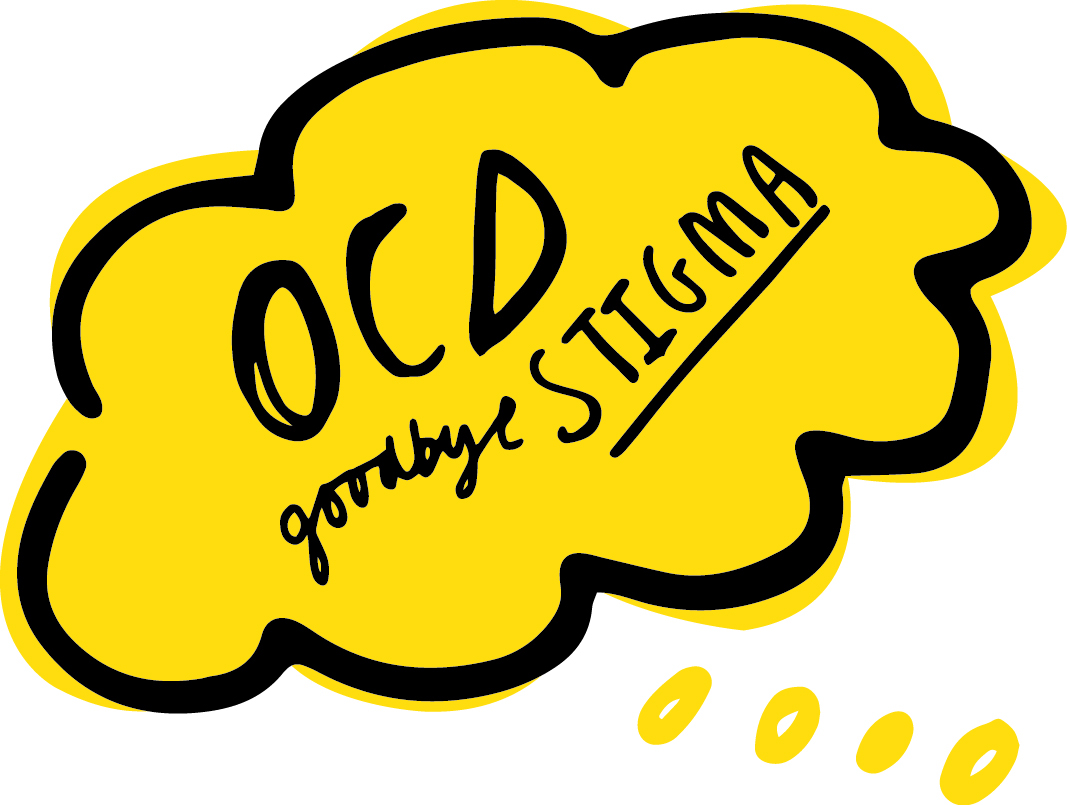
“Obsessive Compulsive Disorder is a serious anxiety-related condition, where a person experiences frequent intrusive and unwelcome obsessional thoughts.... often followed by repetitive compulsions, impulses or urges...” (OCD UK.Org)
An obsessional thought comes in, which results in anxiety, which therefore results in a compulsion, a behaviour that will ‘wipe’ away the anxiety, but only TEMPORARILY. It then repeats again, it is an exhausting viscous circle for those involved.
There are 4 main categories of OCD, and those are Contamination / Mental Contamination, Checking, Hoarding, and Ruminations / Intrusive Thoughts. Each of these categories then have a lot more sub-strands within them, which are demonstrated in the brain storms above. I suffer from Contamination, and Checking compulsions mainly, and sometimes hoarding. Having my own personal insight of this disorder will make this project really unique and special I feel.
Contamination OCD is the probably the ‘most known’ OCD, however, people still don’t quite understand the extent that this illness brings to sufferers. People usually think of people with OCD to be ‘germaphobes’ who wash their hands alot, however not everyone with OCD suffers from these behaviours, or anything to do with contaminants for that matter. This project aims to educate and portray this message to society, whilst supporting sufferers, and combating stigma along the way.

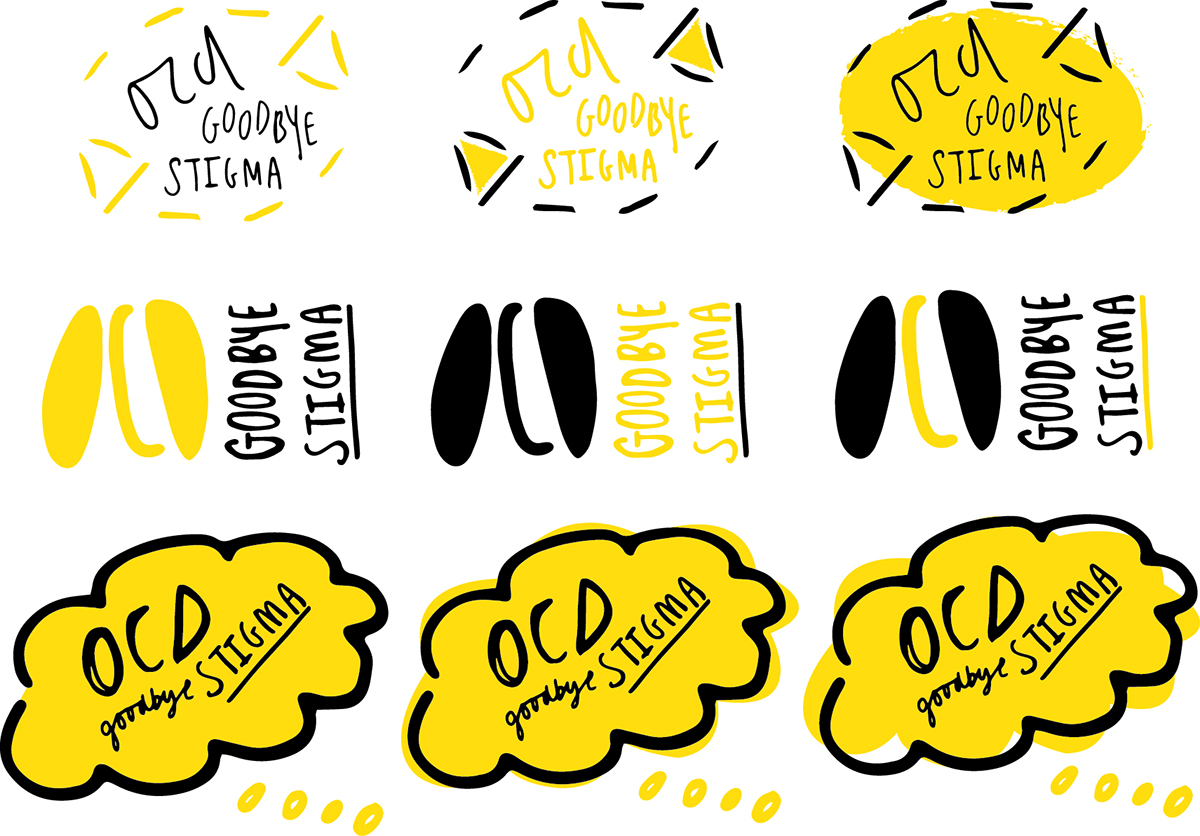
Logo Development and Experimentation
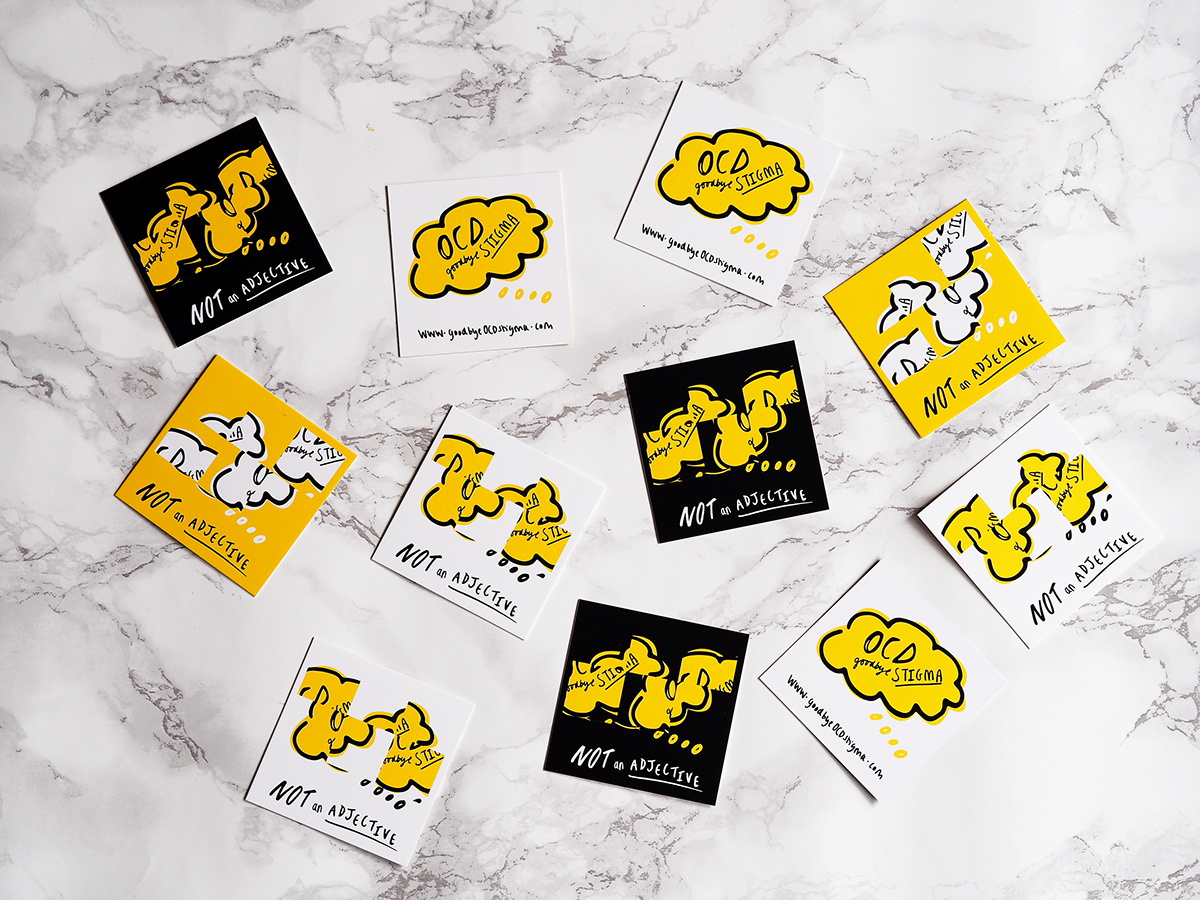
Business Card Designs
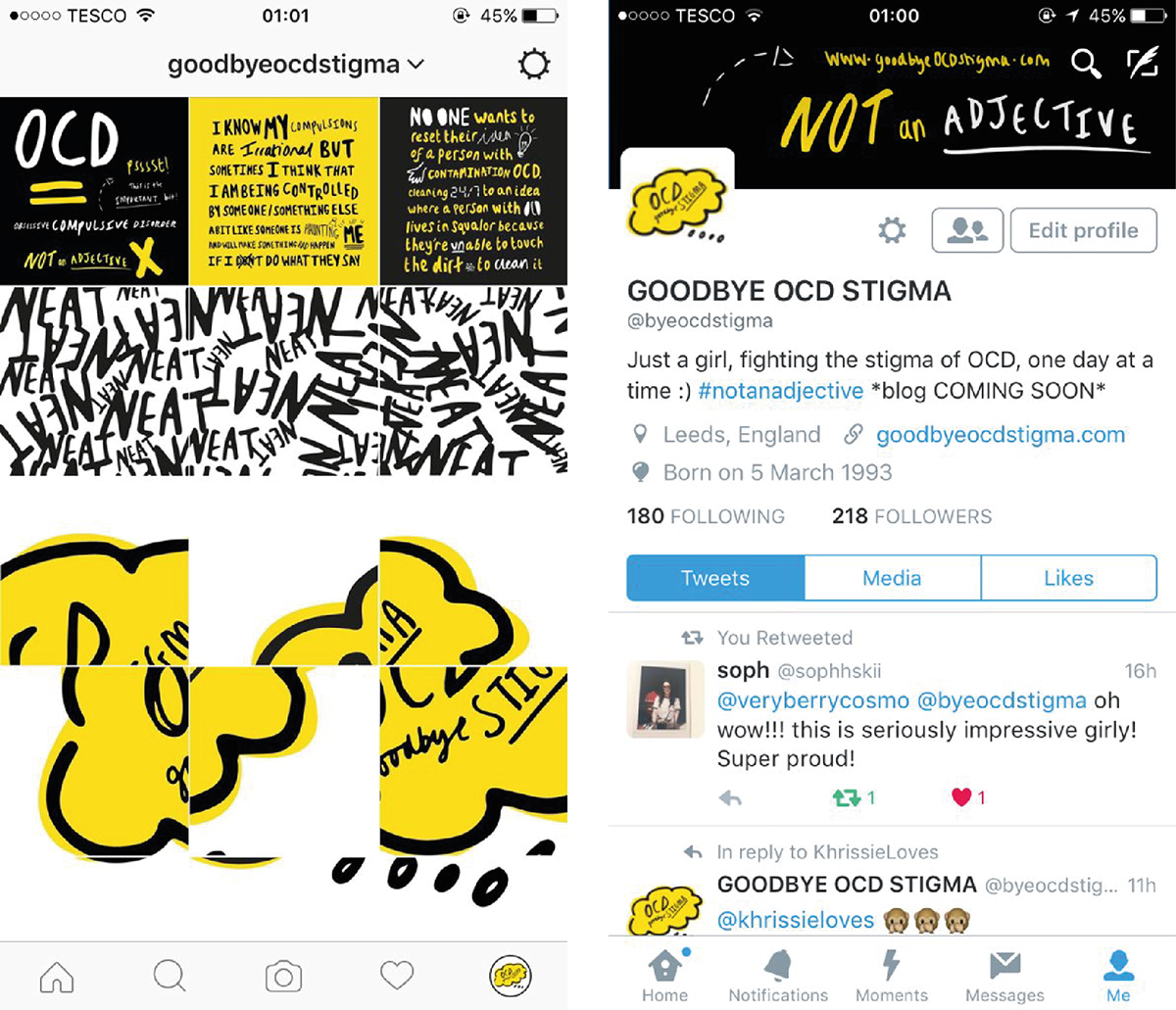
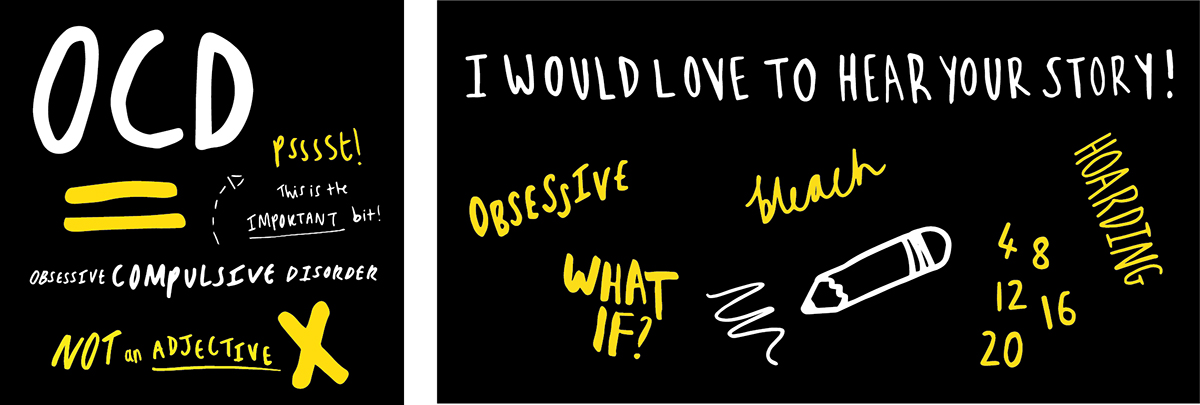
Social Media Usage
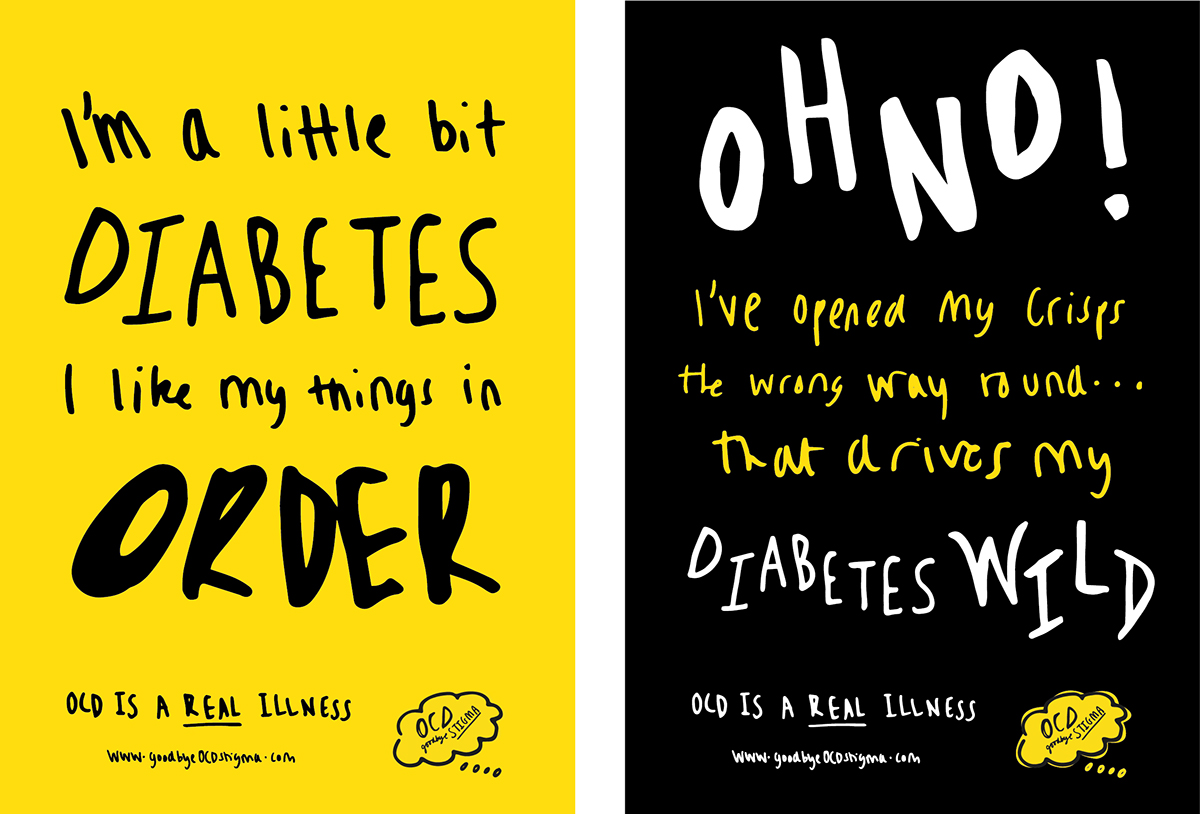
Hard-Hitting Print Campaigns, to feature in magazines or as billboards
These posters have been created with insight 2 in mind. If OCD is a biological disorder why do people still feel the need to tease it? Why isn’t it taken as seriously as other illnesses such as diabetes? Copy has been produced to mimic the types of things people say when they ‘say they are OCD’
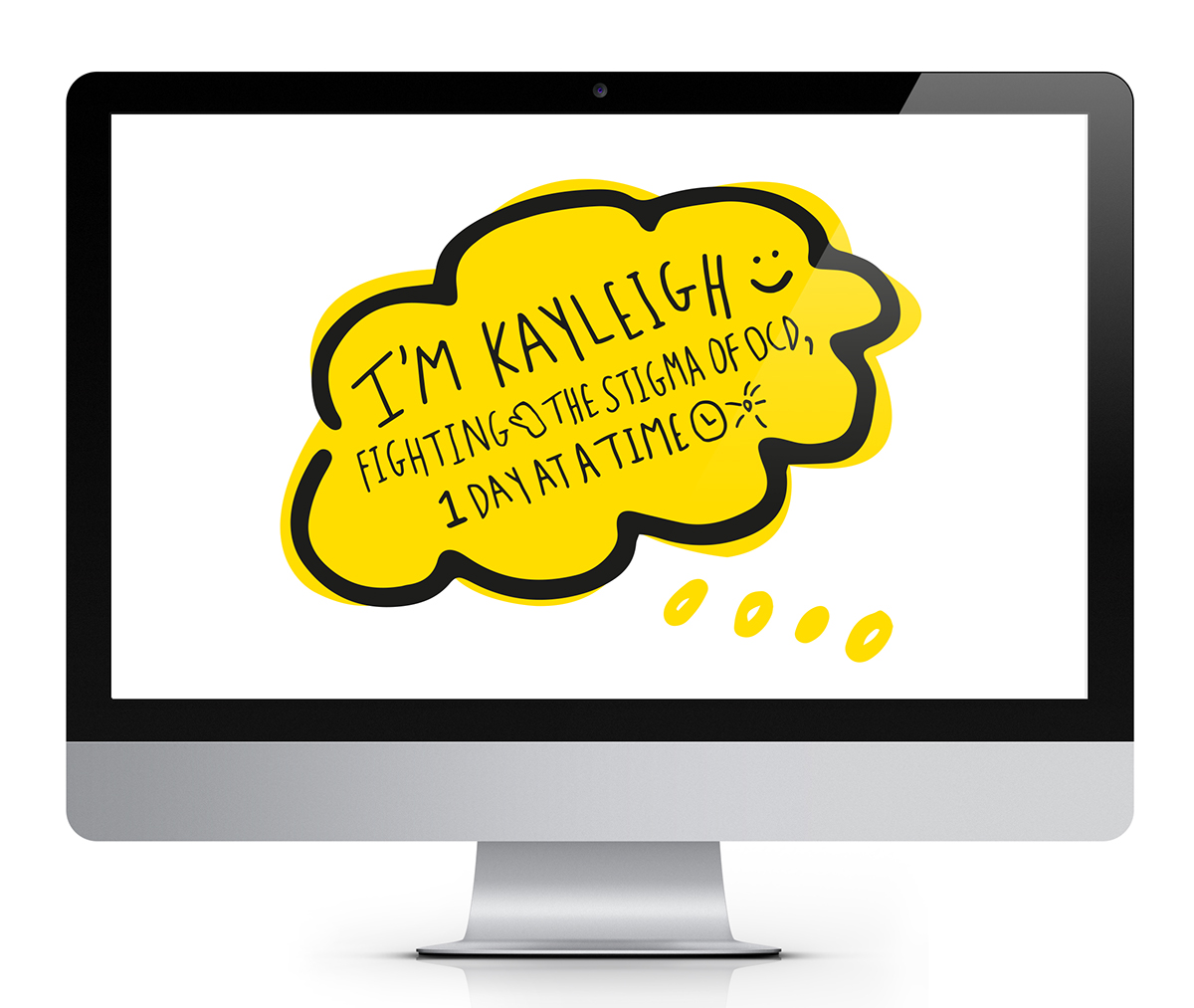
Blog Landing Page
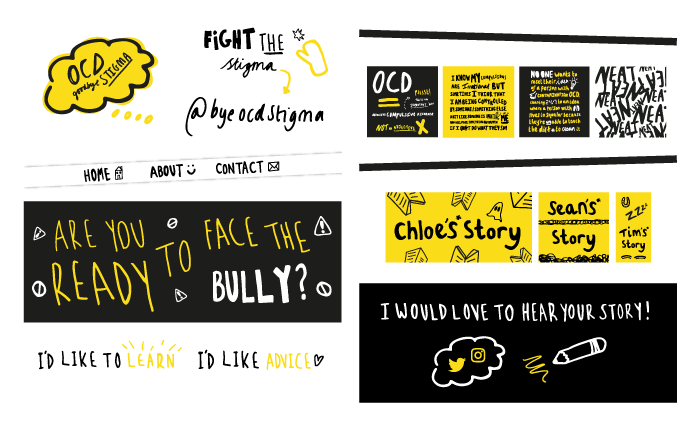
Idea for Blog Design
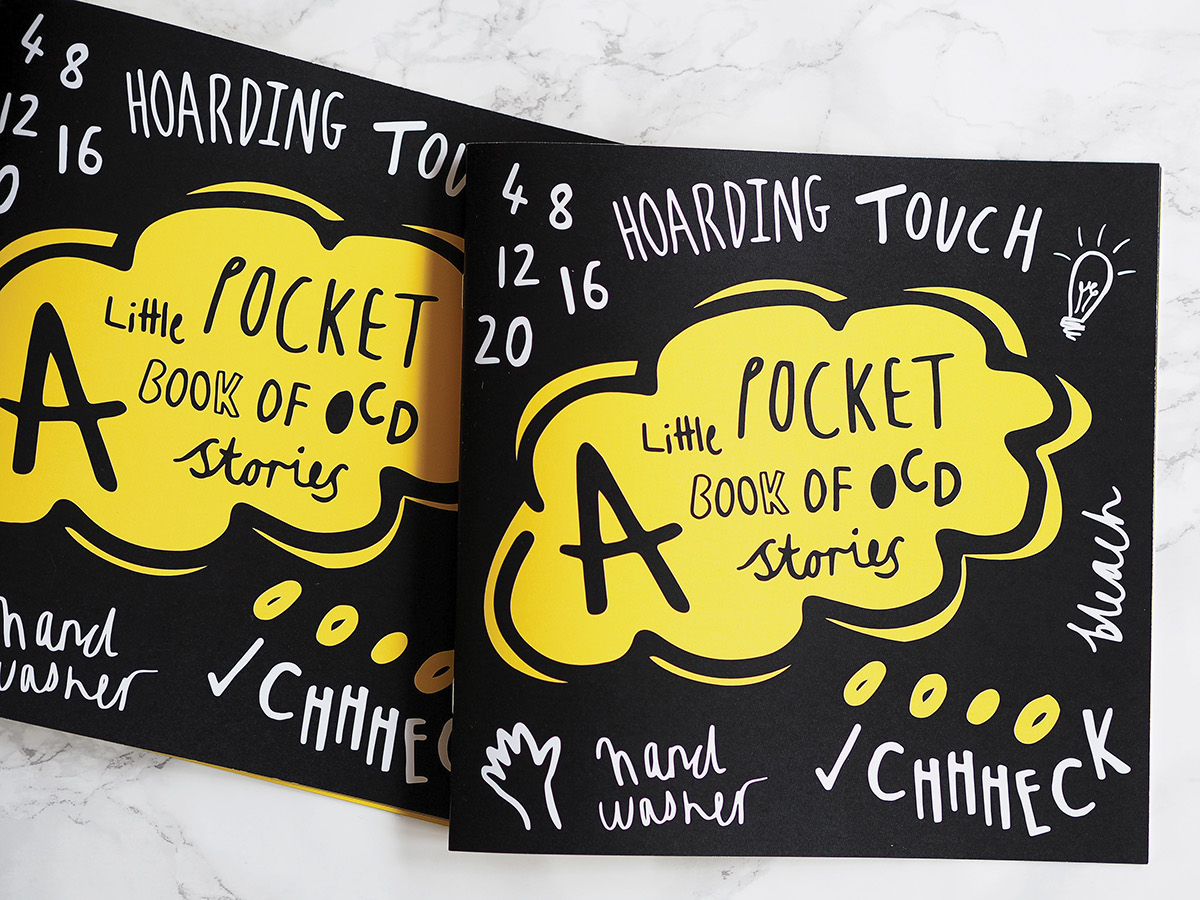
Pocket Book of OCD stories
My final deliverable is a ‘pocket book’ of OCD stories. I printed this book a lot larger than it would be, in order for markers to view it better, but the aim is for the book to be small and portable.
This deliverable features the same branding as the blog / website, in order to coincide the two together. The book has two main aims, which therefore result in two different audiences:
1) To provide support and comfort for OCD sufferers, by reminding them that they are not alone in their thoughts. As a sufferer myself, I have personal experience of feeling like I am completely alone and that nobody else suffers with the same anxieties that I do. Readers are expected to flick through the book and be able to compare and relate to other people, thus reminding that they are not alone, other sufferers are out there. My organisation ‘goodbye OCD stigma’ aims to act as a community and hub, to bring sufferers together as well as educating society.
2) This book can also act as a tool to educate people further about OCD. The main assumption of the disorder is that it is only about cleanliness and tidyness, when in actual fact there are far more strands of the disorder. These varieties of OCD all have unique, devastating life threatening effects on sufferers. Flicking through this publication will demonstrate this.

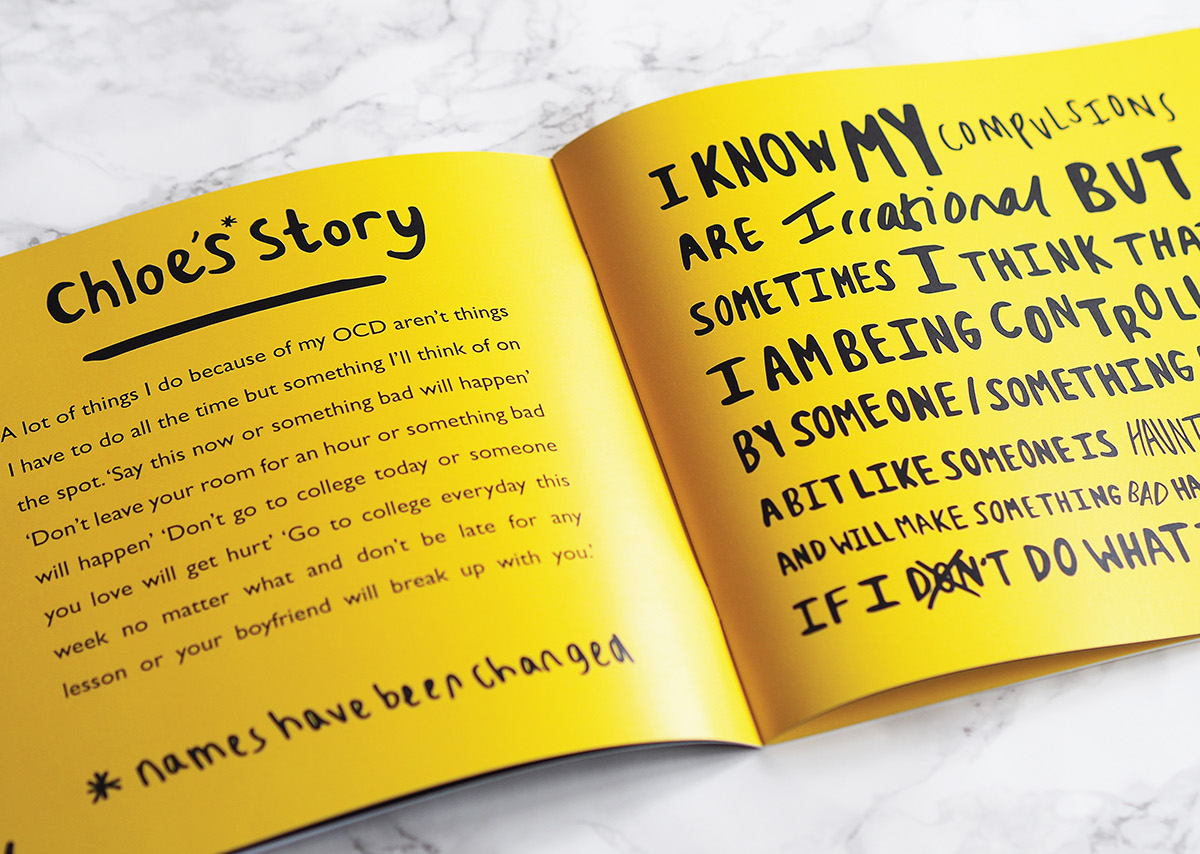

A few stories featured inside the book
Goodbye OCD Stigma.


